
Baptism
Part of Celebrate New Life Services
At 3Crosses, baptism is a joyful step where believers publicly declare their faith in Jesus Christ and their commitment to follow Him.
The whole room is full of celebration as the community hears powerful stories of life transformation and a new believer begins a lifelong journey of growth and fellowship within their church family.
Get Baptized
Our next Celebrate New Life service will take place on Sunday, April 27th!
Register below by sharing a bit of your story, then selecting a service to be baptized at. We’ll be connecting with you shortly after!
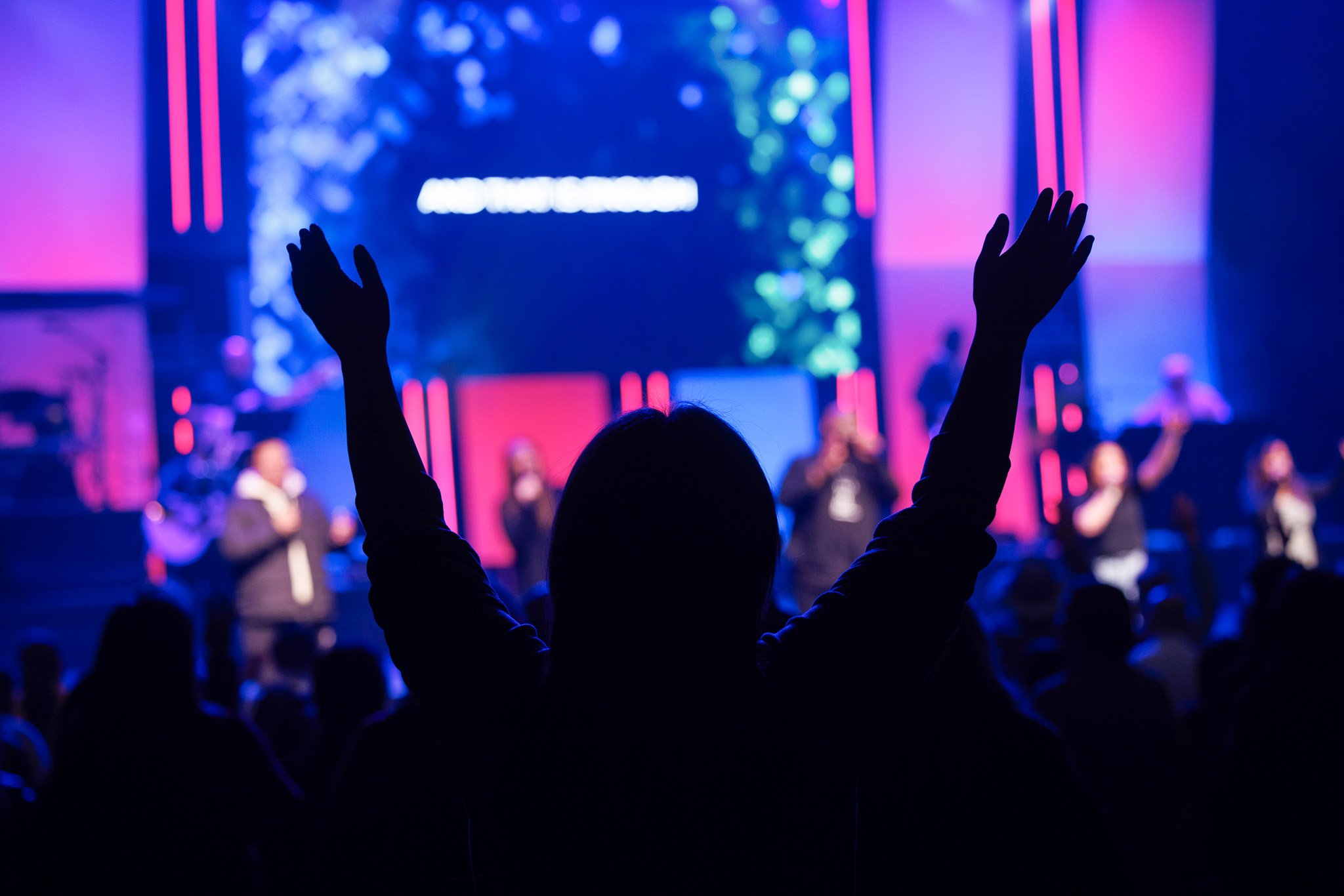
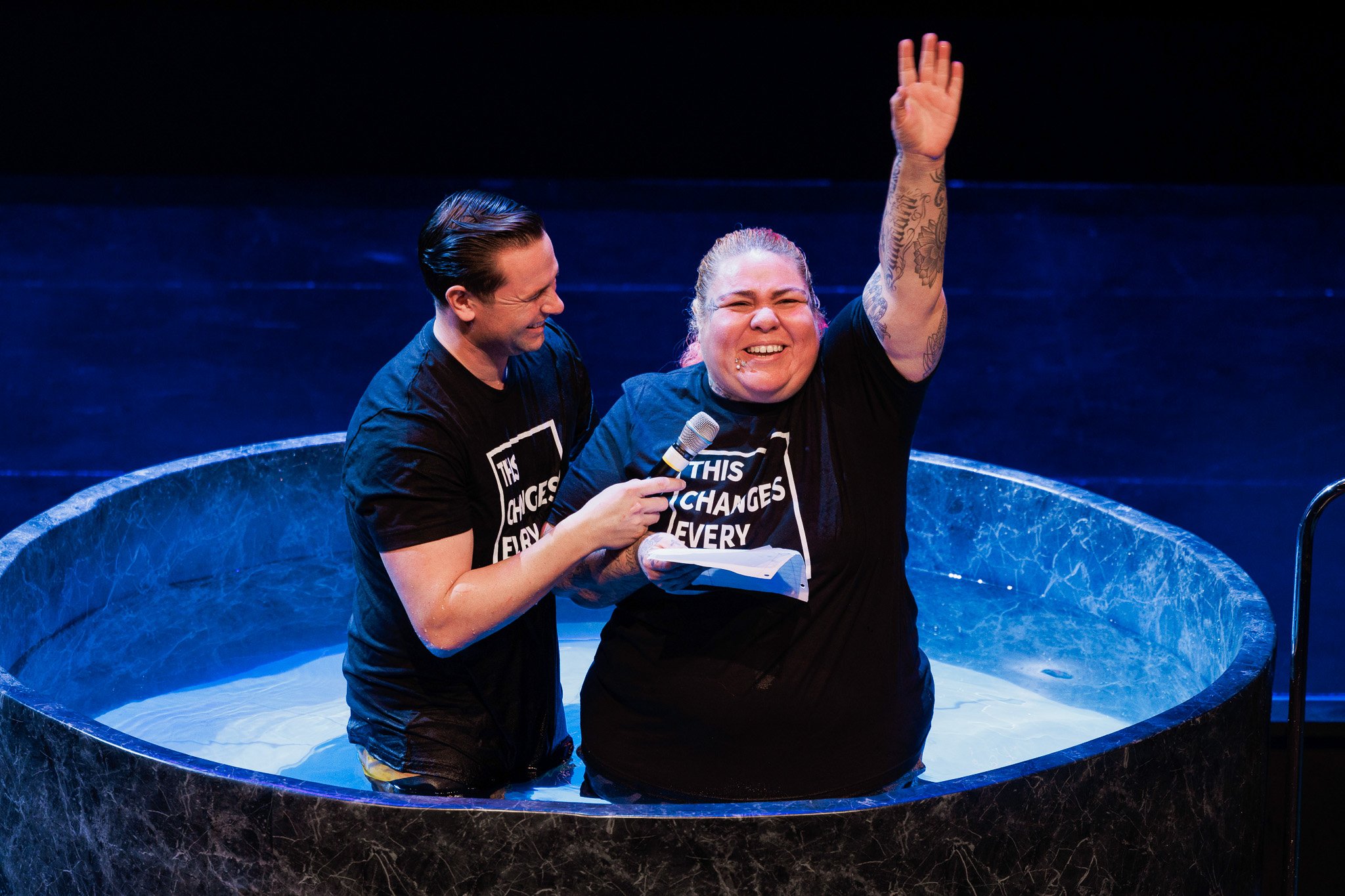


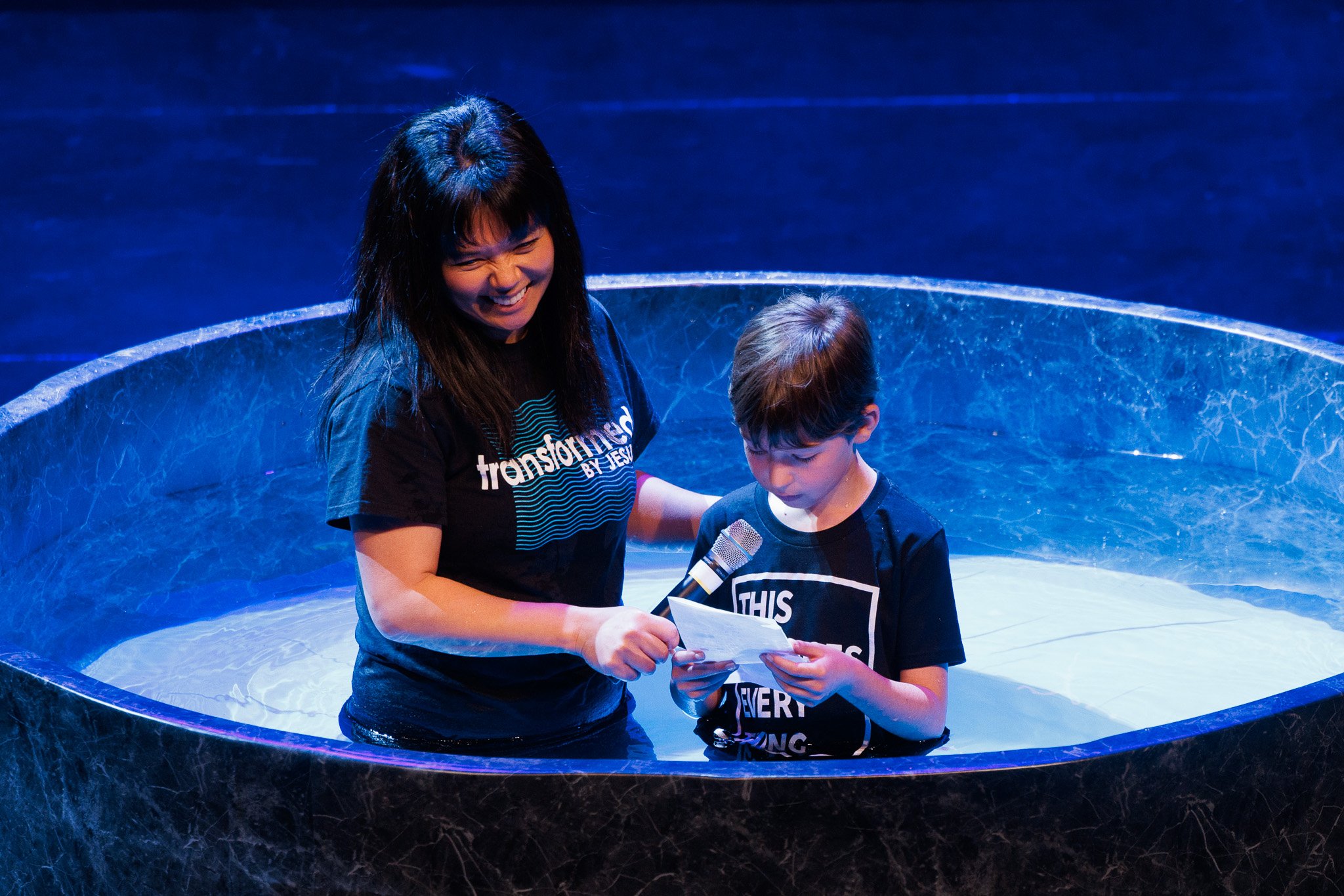
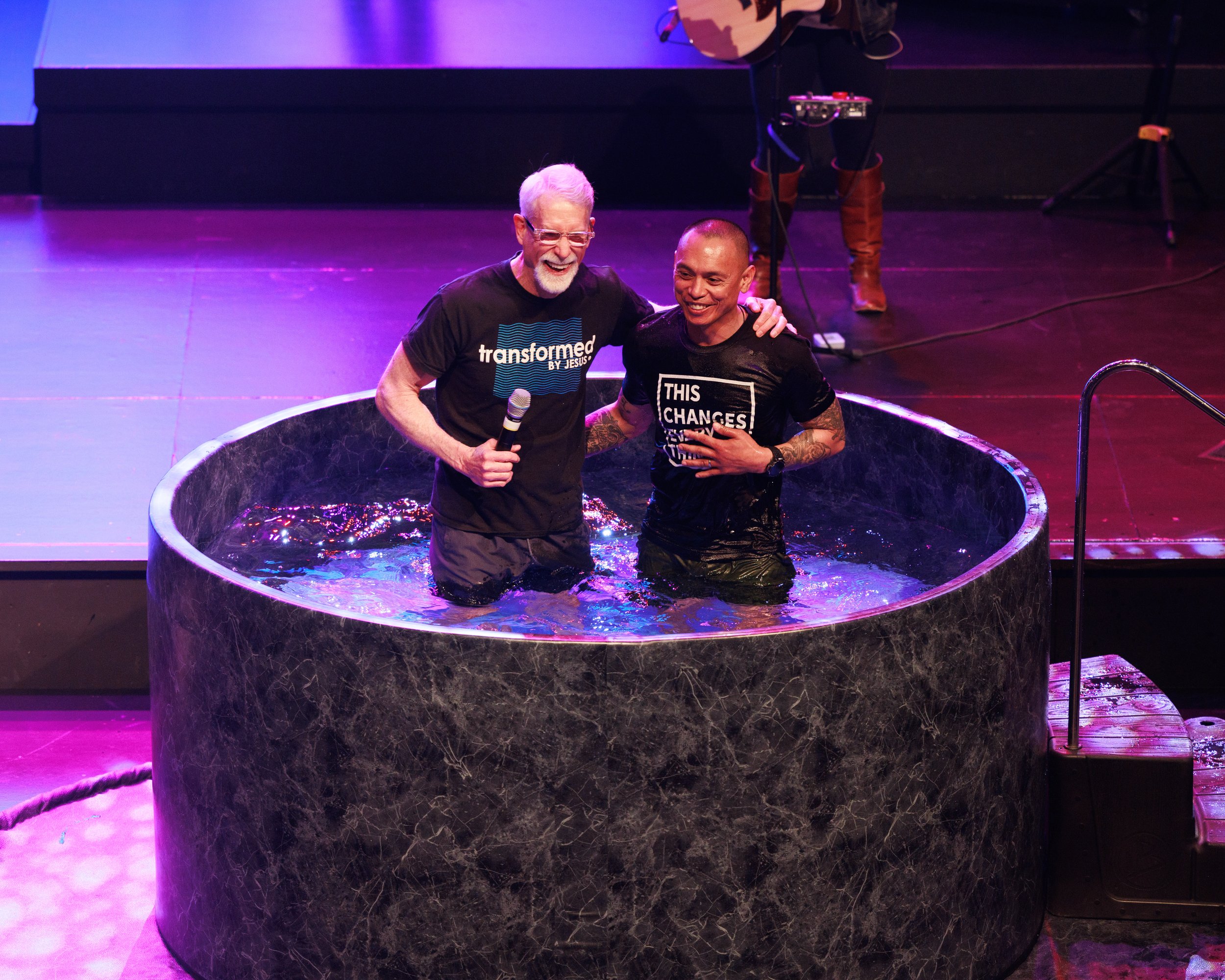
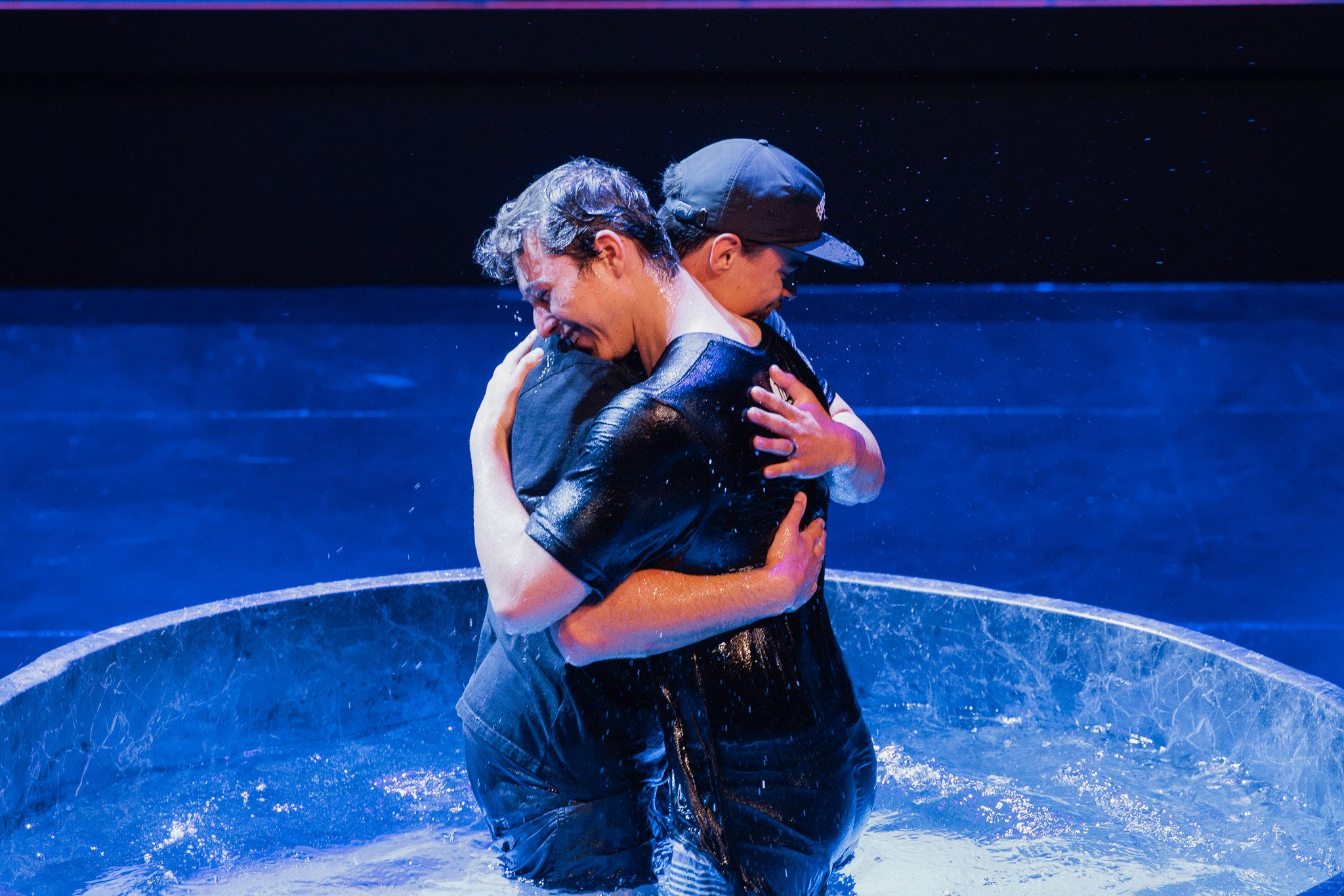

Baptism FAQs
-
This is a fair question. Some churches baptize infants. Some choose not to baptize infants. While Christians can debate this, we should never divide over it. Many current 3Crosses attenders were baptized as babies. At 3Crosses, we don't baptize infants simply because every baptism recorded in the Bible occurred when someone was old enough to make a faith decision. Jesus blessed kids, but he didn't baptize them.
Infant baptism didn't become widely practiced until about 400 years after the birth of the Christian church when Augustine developed the theology of "original sin." In a nutshell, this idea means that when children are born, they are not only sinners, but God holds them accountable for their sins. So if an infant died, Augustine believed that God would hold that child separate from the Lord for all eternity unless the child was saved (through the sacrament of Holy Baptism). Given that the infant mortality rate was high in those days, the practice of infant baptism caught on fast.
3Crosses holds to the implied Bible teaching that there's an age of understanding and accountability when people are mature enough to grasp their need for forgiveness, and thus make a faith decision for themselves. Only God truly knows that age and it may differ for each child. If kids happen to pass before that time, we believe they're going to heaven.
If you were baptized as an infant, that was certainly a special moment for your family as well. Yet at 3Crosses, infant baptism is similar to what we call 'child dedication.' Once you personally come to an age when you decide to follow Jesus, believer's baptism is your next step. Don't be afraid to get re-baptized as an act of worship and obedience to Christ.
-
Whether it's water in a tank, a tub, a pool or the ocean, there's nothing special about the water itself (1 Peter 3:21). The Bible is clear that we are saved by God's grace, through faith in Jesus (Ephesians 2:8-9), not by baptism, or any other works of our own. Baptism does not save us. It's better to think of it like this: baptism is to salvation as a wedding ceremony is to marriage. It's an external declaration of an internal event.
Before Jesus shed his blood for us, John the Baptist baptized people with water to symbolize that they were going to turn from their sins and live God's way. He spoke of a better baptism that Jesus would fulfill and make complete (Matthew 3:11). Christ's blood on the cross is really what washes away sins and pays our debt (Ephesians 1:7).
Baptism is the sign of the conversion believers in Christ have experienced, not the means of the conversion. It reinforces and builds up our faith as we publicly profess that we're part of God's family.
-
It's clearly established in the Bible that you become a Christian by accepting God's free gift of grace (Ephesians 2:8-9). For example, the thief on the cross hanging beside Jesus was saved on the spot and never baptized (Luke 23:43). While baptism is not what saves us, baptism is necessary in that Jesus commands it (Matthew 28:19-20). All genuine Christ-followers should want to obey Jesus by doing what he said, and by doing what he did (John 14:23 & 1 John 2:6). Even Jesus, the perfect Son of God, showed us the importance of baptism by being baptized himself (Matthew 3:13-17).
If you're holding off on being baptized because you feel it is a "technicality" or unnecessary, take some time to examine your motives and pray for God to help you understand his heart on baptism. Ask yourself, "Why is it that I don't want to baptized? Am I willfully disobeying?" If you're waiting for God to directly prompt you to be baptized, you need not wait any longer! He already makes that challenge to each Christ-follower by his Word.
-
Picture the early church, in about A.D. 33. Peter is out preaching to a huge crowd on the temple steps. More than 3,000 people say "yes" to accepting Christ, turn from their sins, and get baptized (Acts 2:38-41). All in the same day! Baptism was virtually the first thing a new Christ-follower did after responding in faith to the good news of the Gospel. In fact, baptism is an act of obedience Jesus expects from every believer. In the early days, one would be hard-pressed to find an unbaptized follower of Christ anywhere.
Jesus instructed, "Believe and be baptized," (Mark 16:16), and that's what those who chose to align themselves with Jesus did. Jesus' words are a command for us to go public with our new faith. Baptism is an outward sign of an inward conversion experience – and it is a celebration of a new life in Christ. According to Romans 6:4, baptism identifies us with Christ's death (as we go under the water) and with his resurrection (as we come up). At baptism, the believer symbolically dies to the old self to become a brand new person who puts Jesus in charge of his or her life.
-
At 3Crosses, we have multiple "Celebrate New Life" services each year. We do the baptisms in the "tank" in the sanctuary at our weekend services; the person being baptized is fully immersed under water.
While some churches sprinkle, baptism by being dunked was the undisputed church practice for the first 1,300 years of church history, according to Catholic historian Brenner. In fact, no early denominational church leaders argued that fact. The very word "baptism" means "to immerse" and that's what the Bible records, so 3Crosses believes that if you're physically able, you should get completely dunked. Sprinkling began as a convenience later in church history due mostly to water shortages, and also became the mode of baptism most practical for baptizing infants.
Again, there is no real significance in the water itself – whether in a tank, a pool, a bathtub or the ocean. In Acts 8:26-38, Philip, a disciple of Jesus, led a man to Christ who was simply traveling on the road. As they rode along, they came to some water, and the new Christ-follower said, "How about that water? Why couldn't I get baptized there?" And he did, and went on his way rejoicing.

